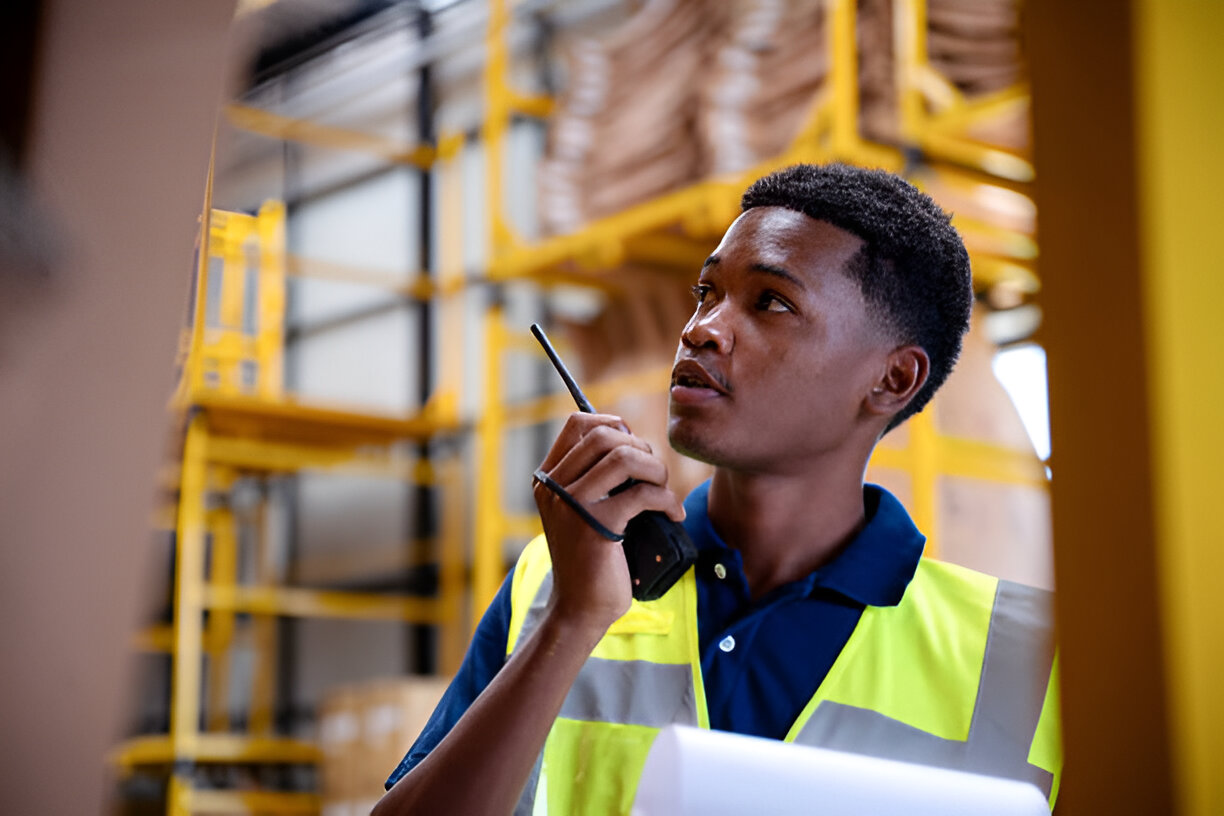How to Work as a Plumber in Canada with Visa Sponsorships: Visa Types, Immigration Pathways, Requirements, and Job Roles
Canada’s booming construction industry and continuous infrastructure development have driven the demand for skilled plumbers. With high wages, job stability, and pathways for long-term residency, Canada has become an attractive destination for plumbers worldwide. This guide covers everything you need to know about working as a plumber in Canada, including visa sponsorship opportunities, visa types, immigration pathways, requirements, and career options.
Who is a Plumber and What Do They Do?
A plumber is a skilled tradesperson responsible for installing, repairing, and maintaining plumbing systems that manage water, heating, and sanitation. Plumbers are essential to the safe and functional operation of residential, commercial, and industrial facilities.
- Primary Responsibilities: Plumbers work with piping systems, fixtures, and water treatment systems. They install new systems, repair and maintain existing systems, and ensure all plumbing adheres to safety and building codes.
- Importance of Plumbers: Plumbers are crucial to ensuring public health and safety by maintaining clean water supply systems and proper sanitation. Their work is foundational to the construction industry and overall community infrastructure.
With a variety of job roles, plumbers have the opportunity to work across residential, commercial, and industrial sectors in Canada.
Why Work as a Plumber in Canada?
Canada offers a robust job market for plumbers, competitive salaries, and career advancement opportunities.
- High Demand for Skilled Trades: Canada’s growth in residential and commercial construction has led to a continuous demand for plumbers, especially in high-growth provinces such as Ontario, British Columbia, and Alberta.
- Competitive Salaries and Benefits: Plumbers in Canada earn competitive wages, with benefits including healthcare, job stability, and retirement plans. Salaries vary based on experience, specialization, and location, with opportunities to earn more in urban areas.
- Opportunities for Career Growth and Specialization: Plumbers can advance their careers by specializing in fields such as pipefitting, gas fitting, and HVAC systems. Additionally, experienced plumbers may progress to roles such as master plumber, plumbing inspector, or contractor.
For plumbers, Canada presents a promising career path with opportunities for growth, financial stability, and job security.
Visa Sponsorship Opportunities for Plumbers
Visa sponsorships provide plumbers with a path to work legally in Canada, supported by Canadian employers who value skilled trades.
- Finding Employers Offering Sponsorship: Many plumbing contractors, construction companies, and local municipalities in Canada sponsor skilled plumbers. Job search platforms like Job Bank, Indeed, and specialized trade job boards often list openings with visa sponsorship.
- Programs Supporting Sponsorship: Canada’s Temporary Foreign Worker Program (TFWP) allows employers to sponsor plumbers on a temporary basis, addressing skill shortages.
- Employer Requirements for Sponsorship: Employers must complete a Labour Market Impact Assessment (LMIA) to prove the need for foreign workers. Plumbers with specialized certifications or experience are often favored for sponsorship.
- Networking and Trade Associations: Joining trade organizations like the Canadian Institute of Plumbing & Heating can help plumbers connect with potential sponsors and stay updated on job opportunities.
Visa sponsorship provides a reliable pathway for plumbers to secure employment in Canada, with support from reputable employers.
Visa and Immigration Pathways for Plumbers
Plumbers can explore multiple visa and immigration pathways for working and living in Canada.
- Express Entry System: The Federal Skilled Trades Program (FSTP) under Express Entry is designed for skilled tradespeople, including plumbers, to apply for permanent residency. This program considers work experience, education, and language proficiency.
- Provincial Nominee Program (PNP): Provinces like British Columbia, Ontario, and Alberta offer PNPs that prioritize skilled trades workers, including plumbers. Through PNPs, provinces nominate candidates for permanent residency based on regional labor demands.
- Temporary Work Permits and Employer Sponsorship: Plumbers with job offers from Canadian employers can apply for temporary work permits through the TFWP, allowing them to work in Canada temporarily.
- Open Work Permits for Accompanying Partners: Spouses or partners of plumbers moving to Canada can apply for open work permits, enabling them to work while the primary applicant is employed.
- Pathways to Permanent Residency for Skilled Workers: Temporary work permit holders can transition to permanent residency through the Canadian Experience Class or specific PNPs.
These pathways allow plumbers to work in Canada with flexibility, whether they seek temporary employment or long-term residency.
Eligibility Requirements for Plumber Visas
To qualify for Canadian work visas, plumbers must meet certain educational, professional, and language requirements.
- Educational Background and Trade Certification: Most employers require plumbers to have completed secondary education and trade-specific certification. Apprenticeship training and certification through a trade school or program are often necessary.
- Professional Experience and References: Work experience is crucial for securing a visa and job offer. Preparing a detailed resume, letters of recommendation, and examples of past work can enhance an application.
- Language Proficiency: Many visa programs require English or French proficiency, particularly for Express Entry. Language tests like IELTS or TEF can demonstrate this proficiency.
- Proof of Financial Independence: Some visa applications require applicants to show proof of financial stability, such as savings or income statements, to confirm they can support themselves in Canada.
Meeting these requirements is essential for a successful visa application and prepares plumbers for a smooth transition to the Canadian workforce.
Application Process for a Plumber Visa
The visa application process for plumbers includes several steps, depending on the chosen visa type.
- Choosing the Right Visa Pathway: Assess visa options based on job offers, qualifications, and career goals. Select the best pathway for your circumstances.
- Collecting Required Documents: Gather essential documents, including certifications, letters of recommendation, proof of work experience, language test results, and financial statements.
- Submitting the Application: Complete the online application process, upload all necessary documents, and pay required fees. Processing times vary based on the visa type and country of origin.
- Preparing for Arrival in Canada: Plan relocation by researching housing, understanding Canadian work standards, and joining trade associations to ease the integration process.
Following these steps helps streamline the application process and prepares plumbers for a successful transition to Canada.
Licensing and Certification for Plumbers in Canada
Provincial licensing and certification are essential for plumbers in Canada, with requirements varying by province.
- Provincial Licensing Requirements: Plumbing is a regulated trade in some provinces, requiring plumbers to obtain a provincial license or certification. Check the specific licensing requirements for the province where you plan to work.
- Red Seal Certification: The Red Seal certification is a nationally recognized standard for skilled trades in Canada. Plumbers with Red Seal certification can work across provinces without additional exams, enhancing job flexibility.
- Continuing Education and Specialized Training: Pursuing additional training in areas like gas fitting, pipefitting, or HVAC systems can open career opportunities and increase earning potential.
Licensing and certification ensure that plumbers meet Canadian industry standards and enhance employability nationwide.
Job Roles and Career Paths for Plumbers in Canada
Plumbers can pursue various roles in Canada based on their skills and experience.
- Residential Plumber: Installs and repairs plumbing in homes, handling kitchens, bathrooms, piping, and drainage systems.
- Commercial Plumber: Works on larger plumbing systems in commercial buildings, handling complex layouts and maintenance requirements.
- Industrial Plumber: Maintains and repairs plumbing systems in industrial facilities, ensuring safety and compliance with efficiency standards.
- Plumbing Inspector: Ensures that plumbing installations meet building codes and standards, often working for municipal or regulatory bodies.
- Master Plumber or Contractor: Experienced plumbers can progress to supervisory roles, managing teams of apprentices and overseeing plumbing projects.
Each role provides plumbers with opportunities for career growth and specialization within the Canadian plumbing industry.
Conclusion
Working as a plumber in Canada offers a rewarding career path with competitive wages, visa sponsorship opportunities, and pathways for permanent residency.. For skilled tradespeople, Canada is a prime destination for job stability and career advancement.
Frequently Asked Questions
Q: Do plumbers need a job offer to apply for a work visa in Canada?
A: For certain visa types, like the Temporary Foreign Worker Program, a job offer and employer sponsorship are required. However, the Federal Skilled Trades Program under Express Entry does not require a job offer for permanent residency applications.
Q: Is a trade certification necessary to work as a plumber in Canada?
A: Yes, many employers prefer plumbers with trade certification. Obtaining a Red Seal certification improves job prospects and allows plumbers to work across provinces.
Q: How long does the visa application process take for plumbers?
A: Processing times vary based on visa type. The Temporary Foreign Worker Program may process work permits within weeks, while Express Entry applications may take several months


